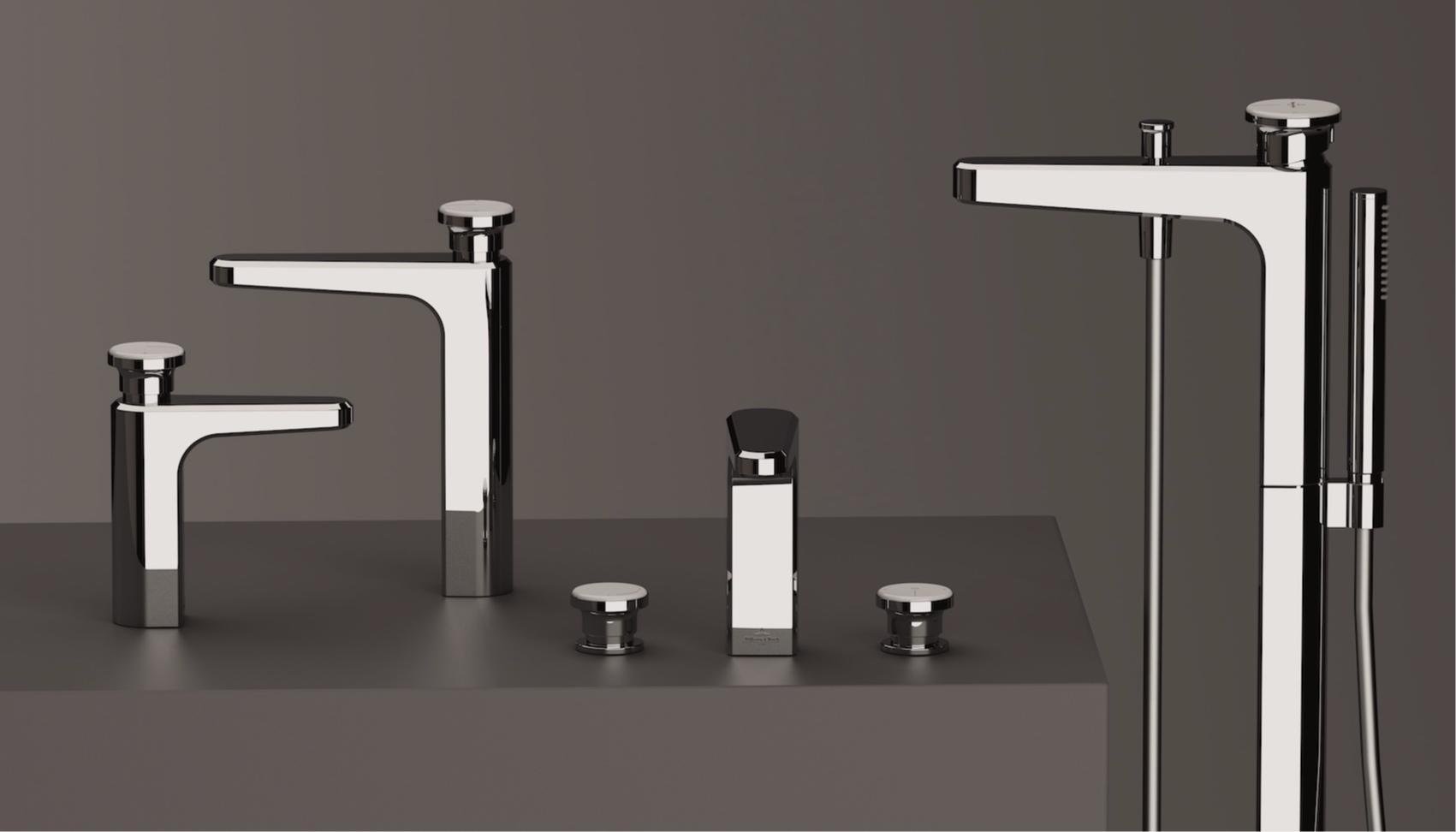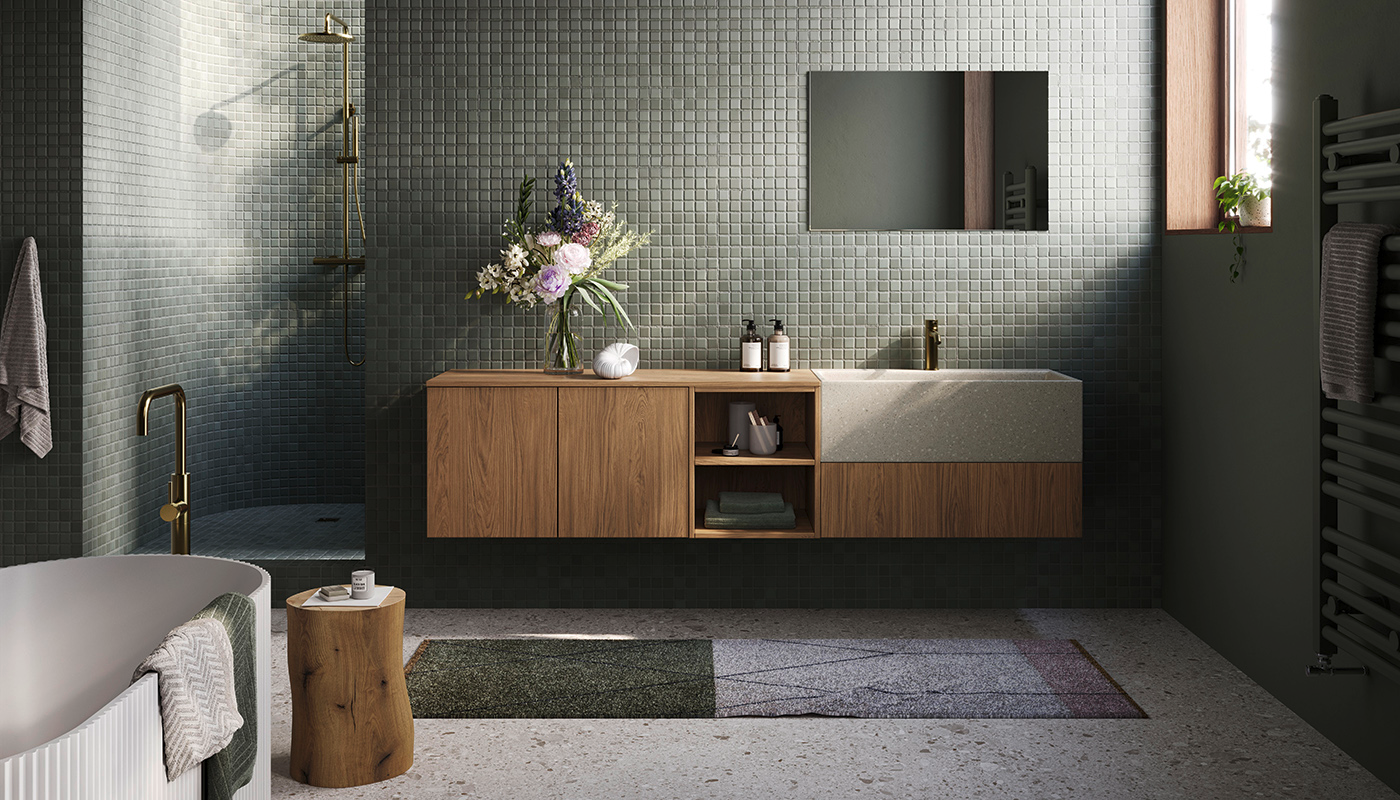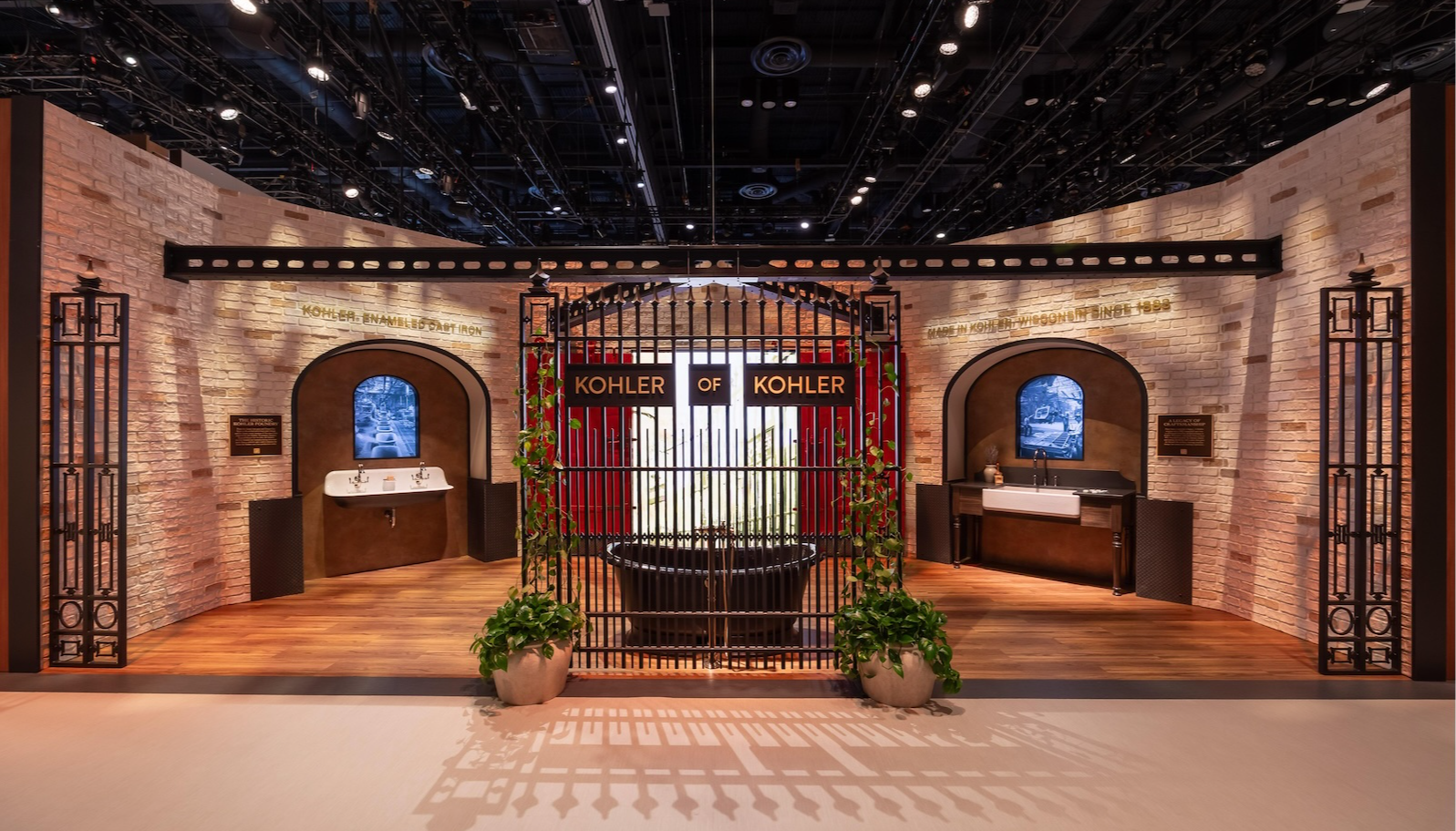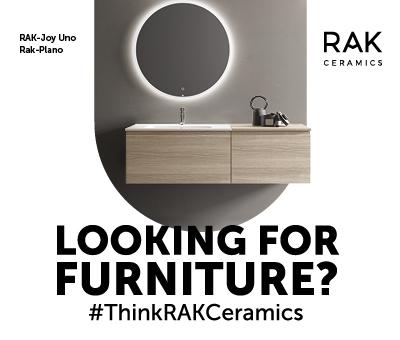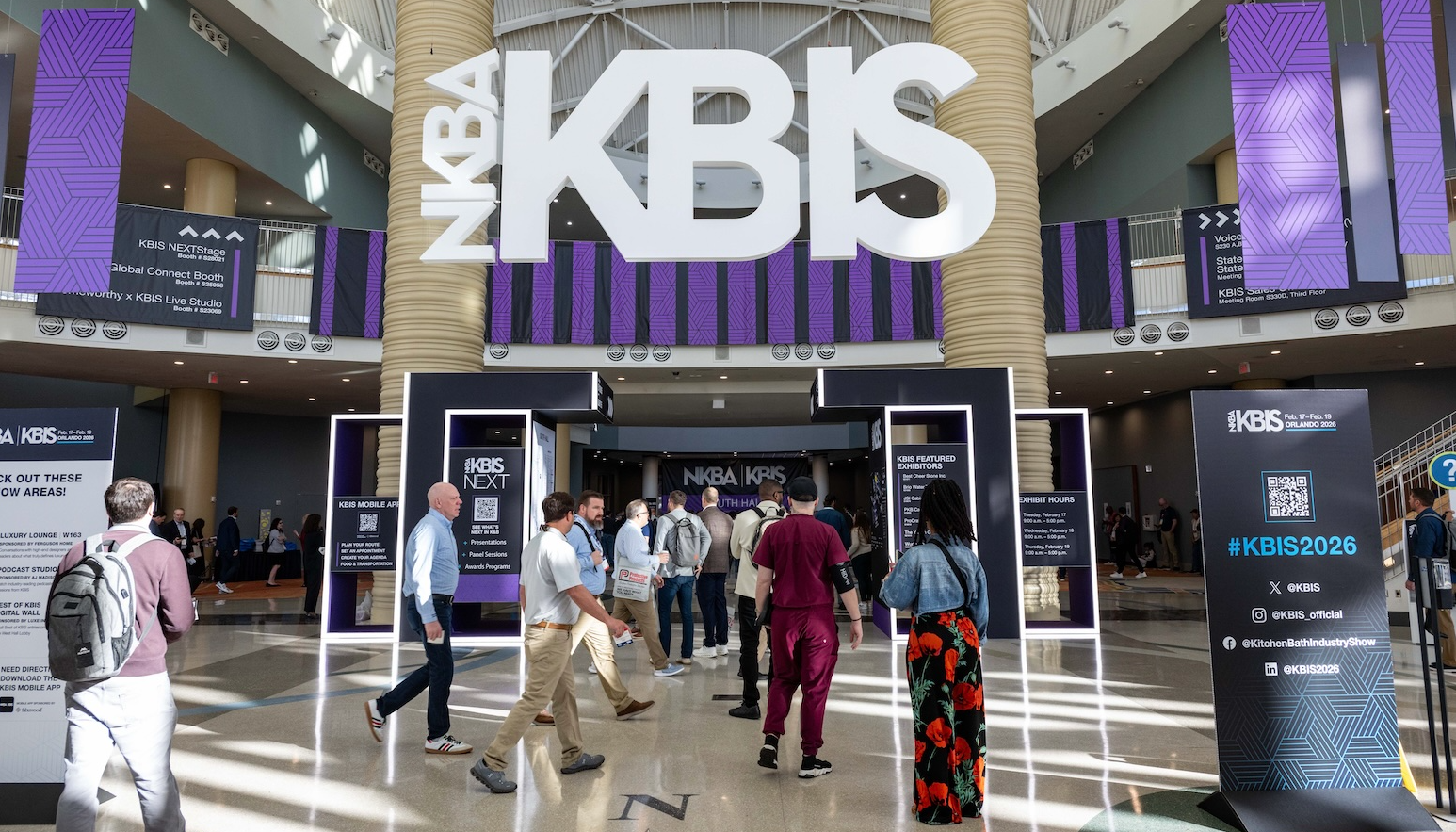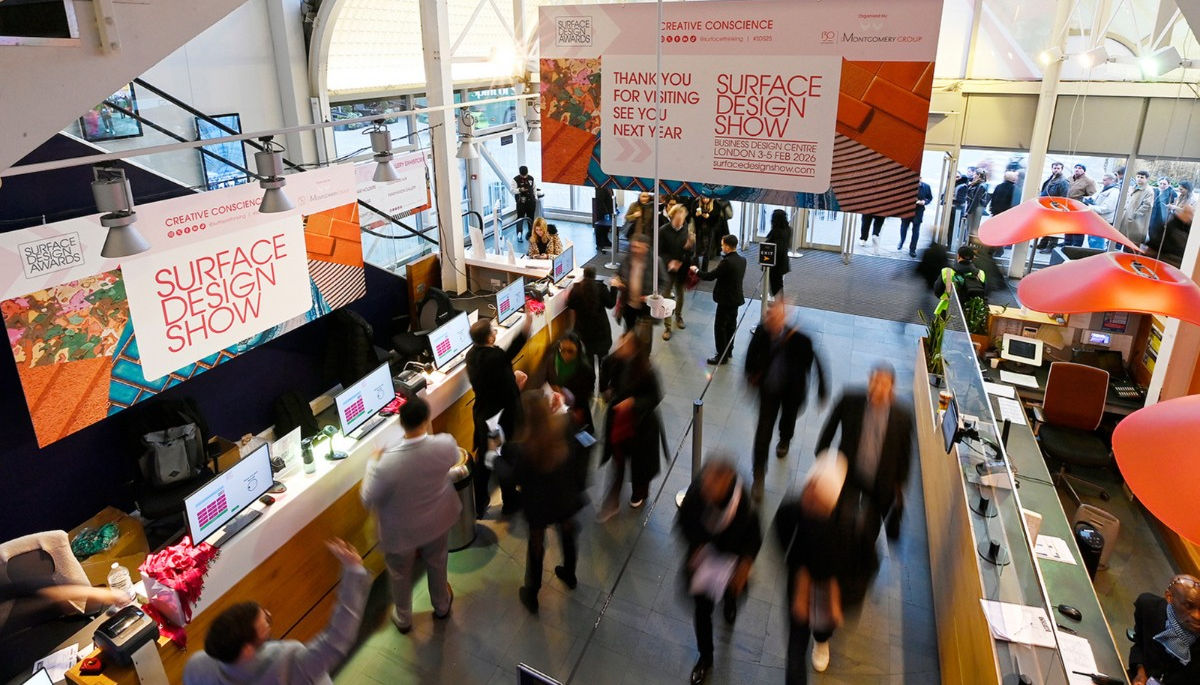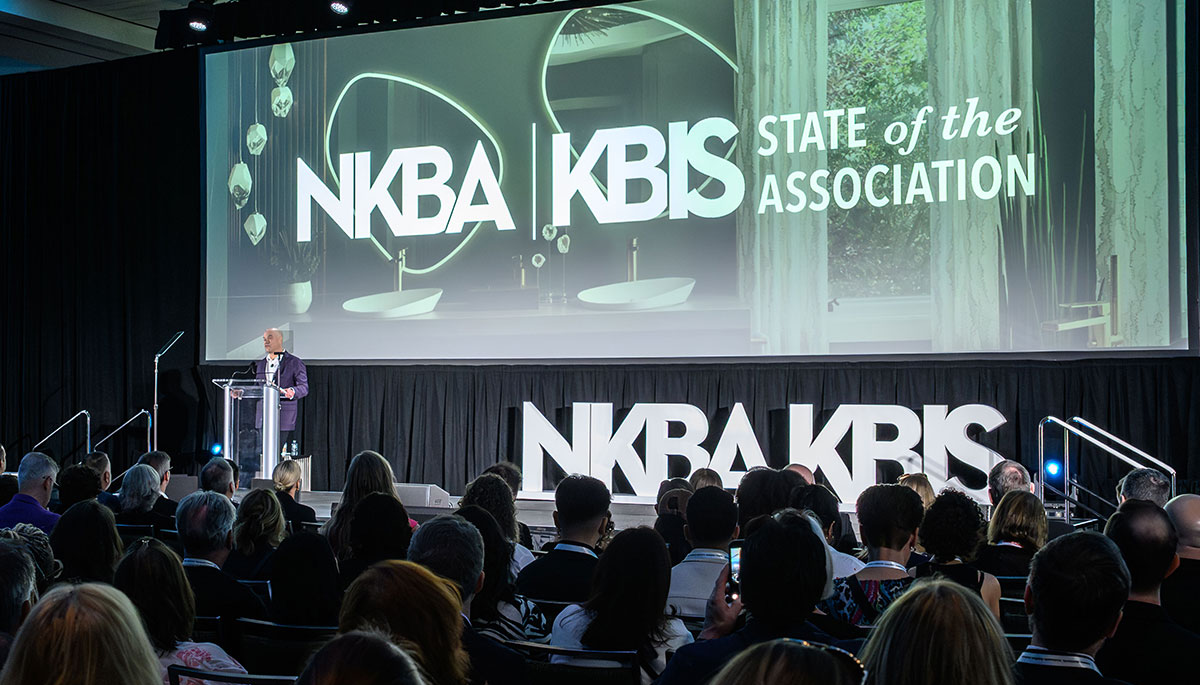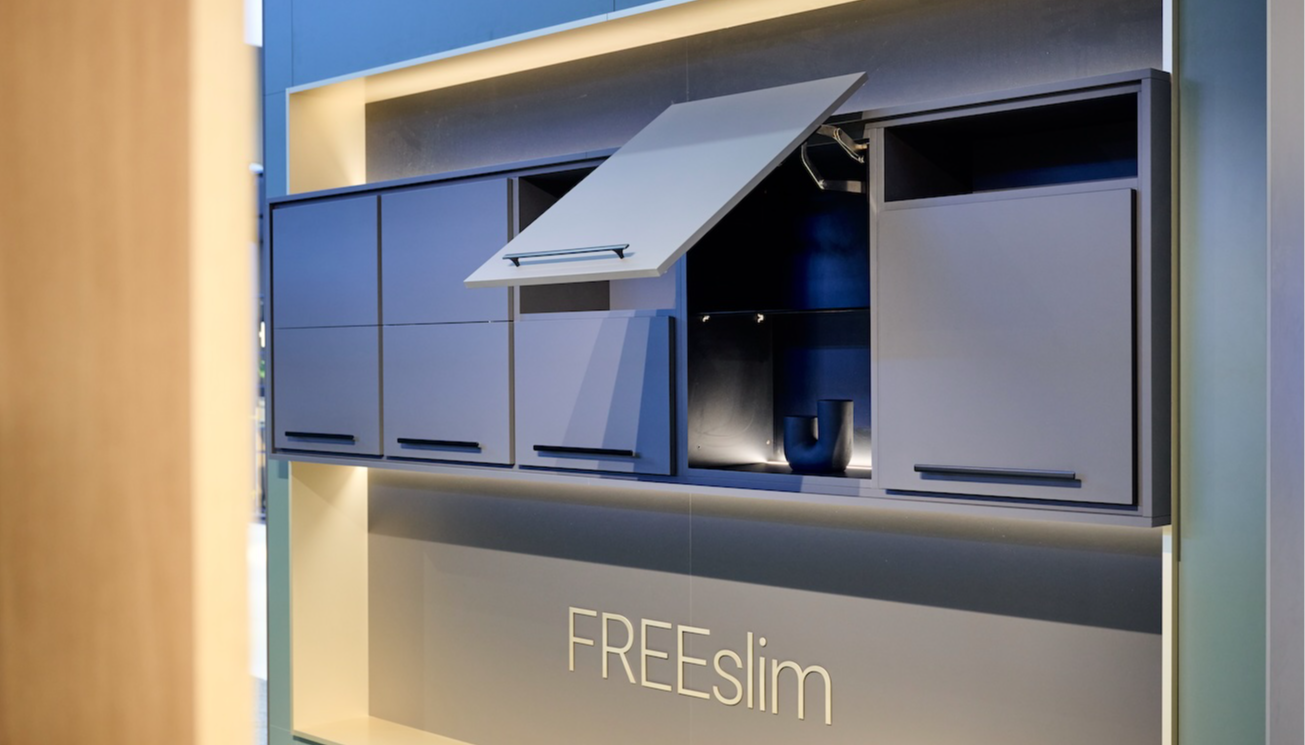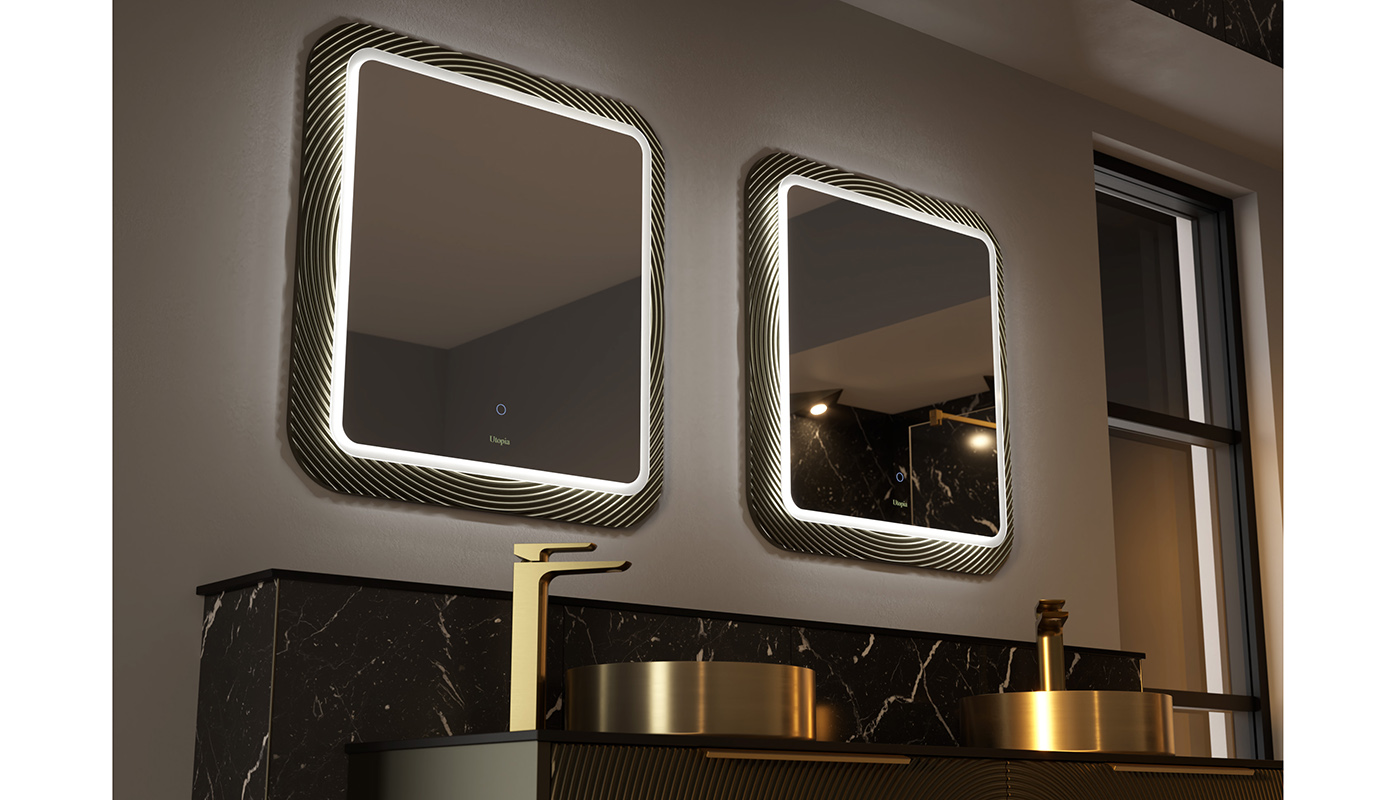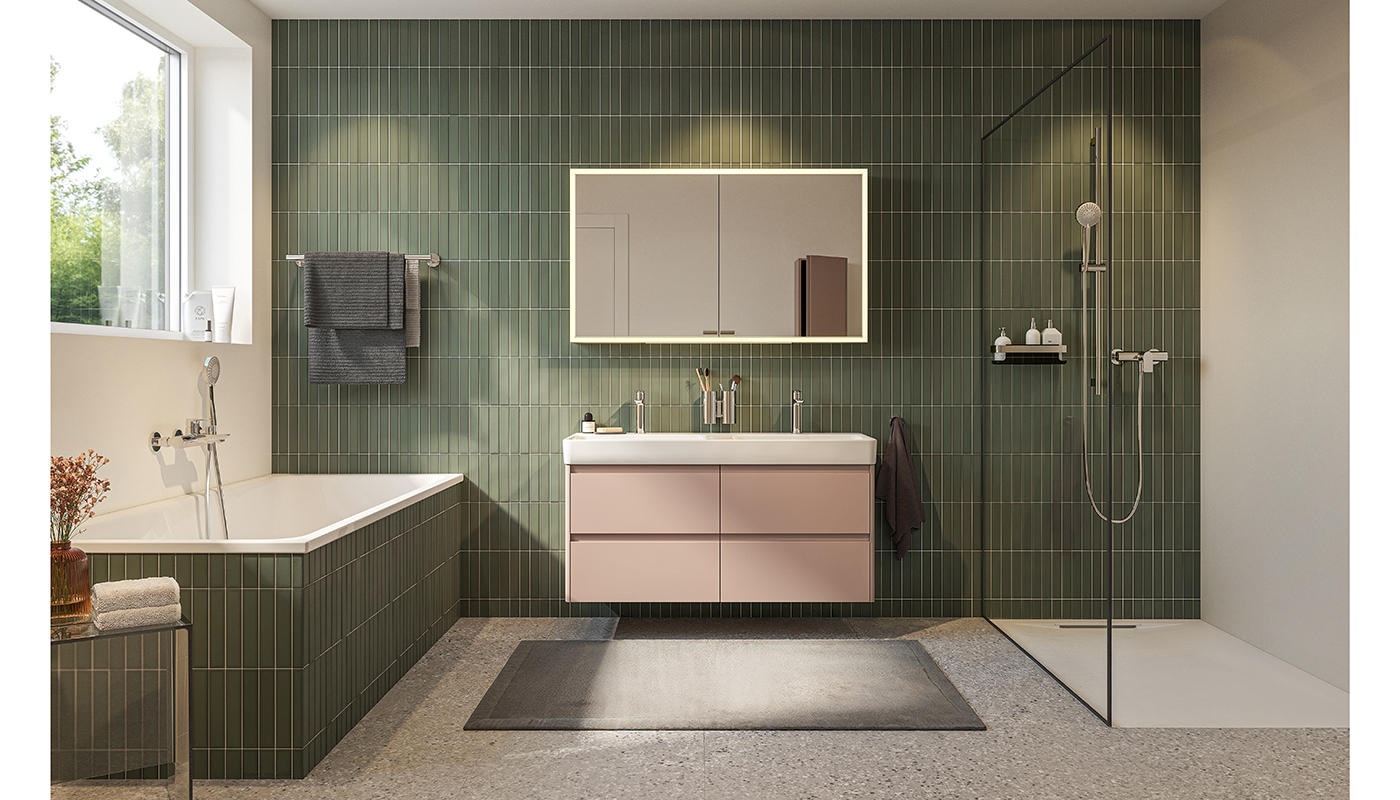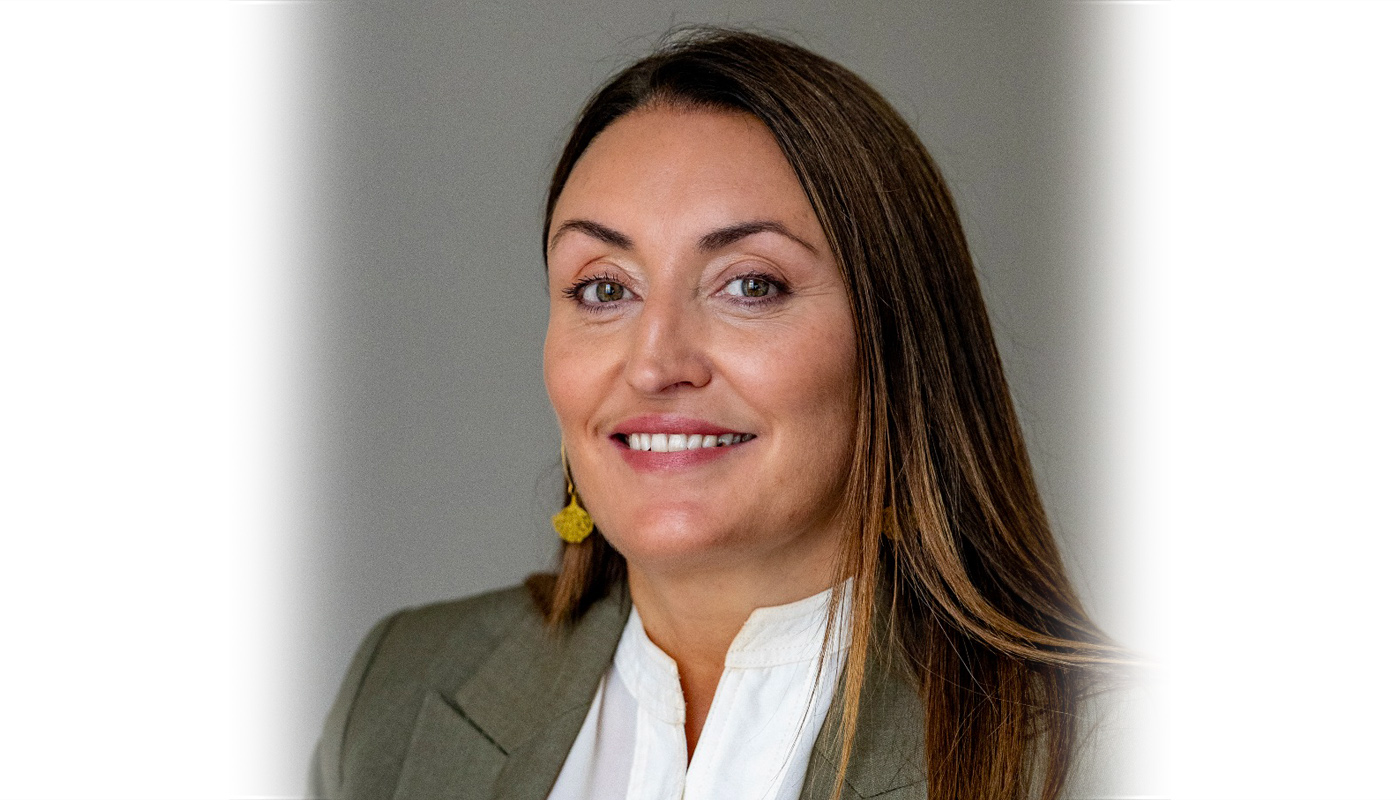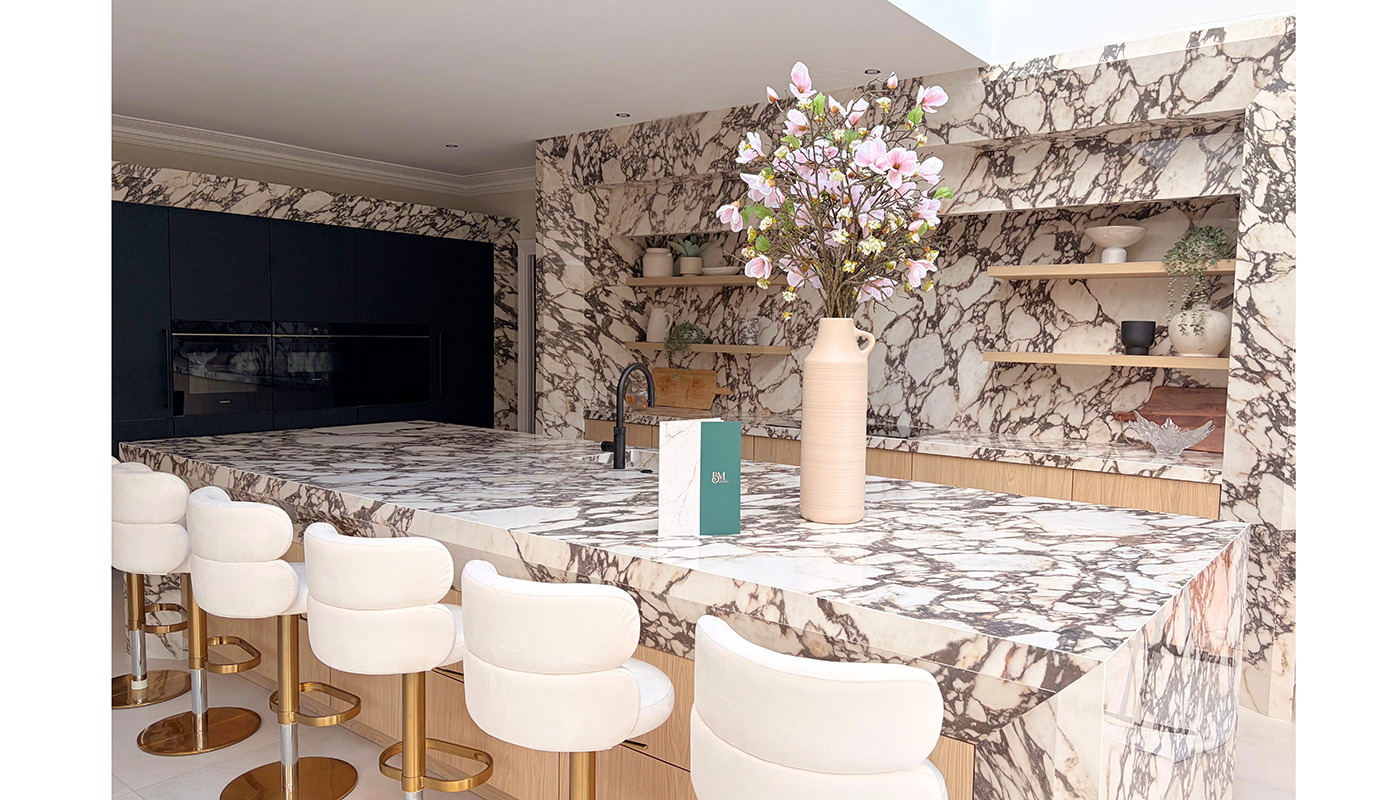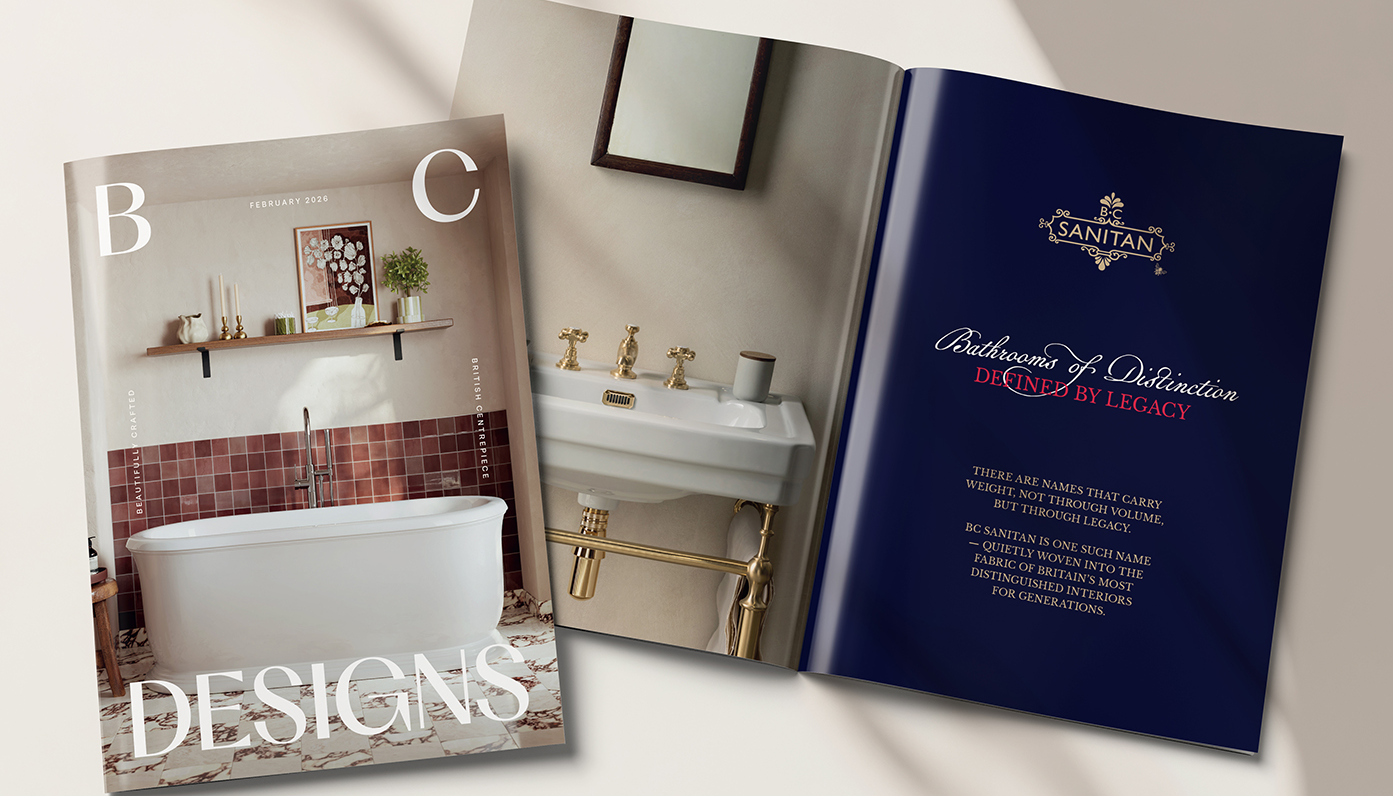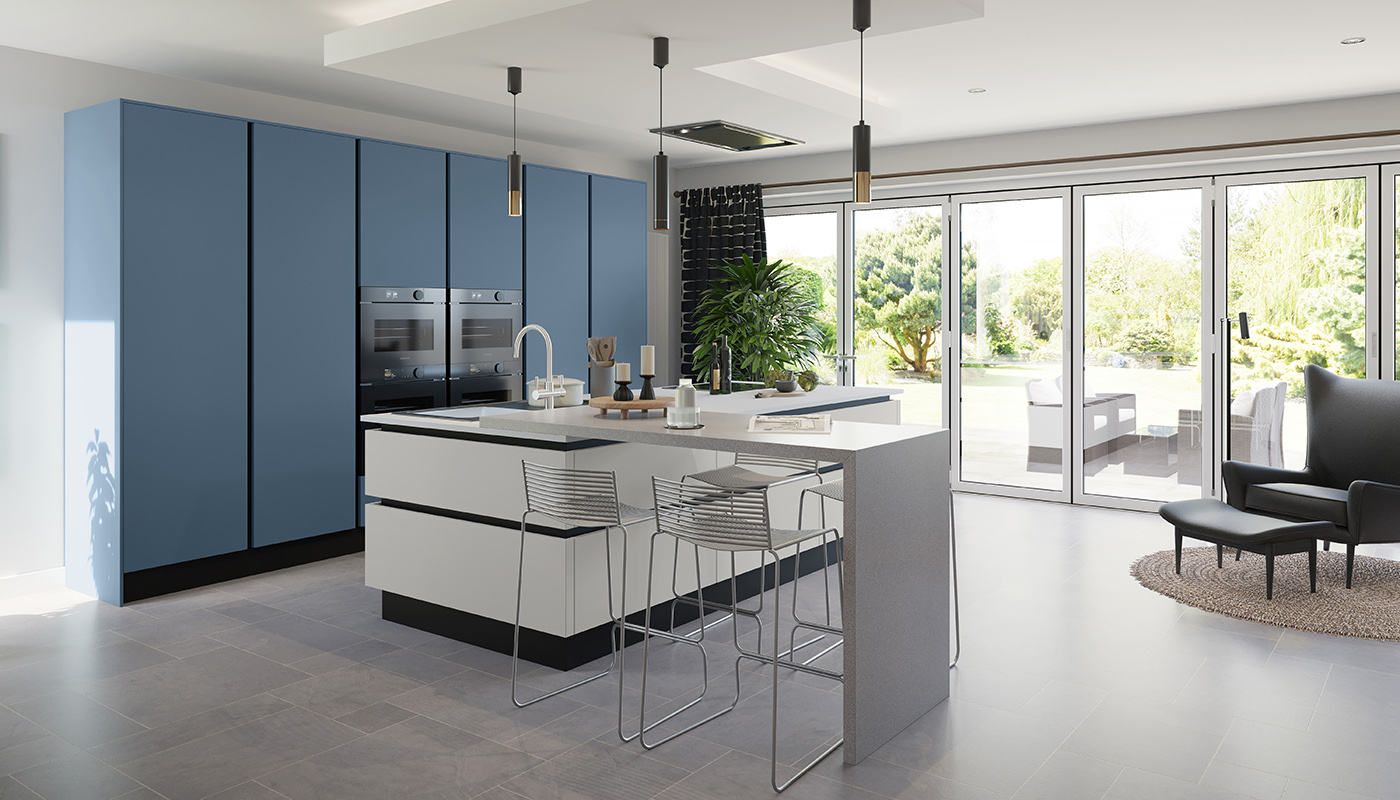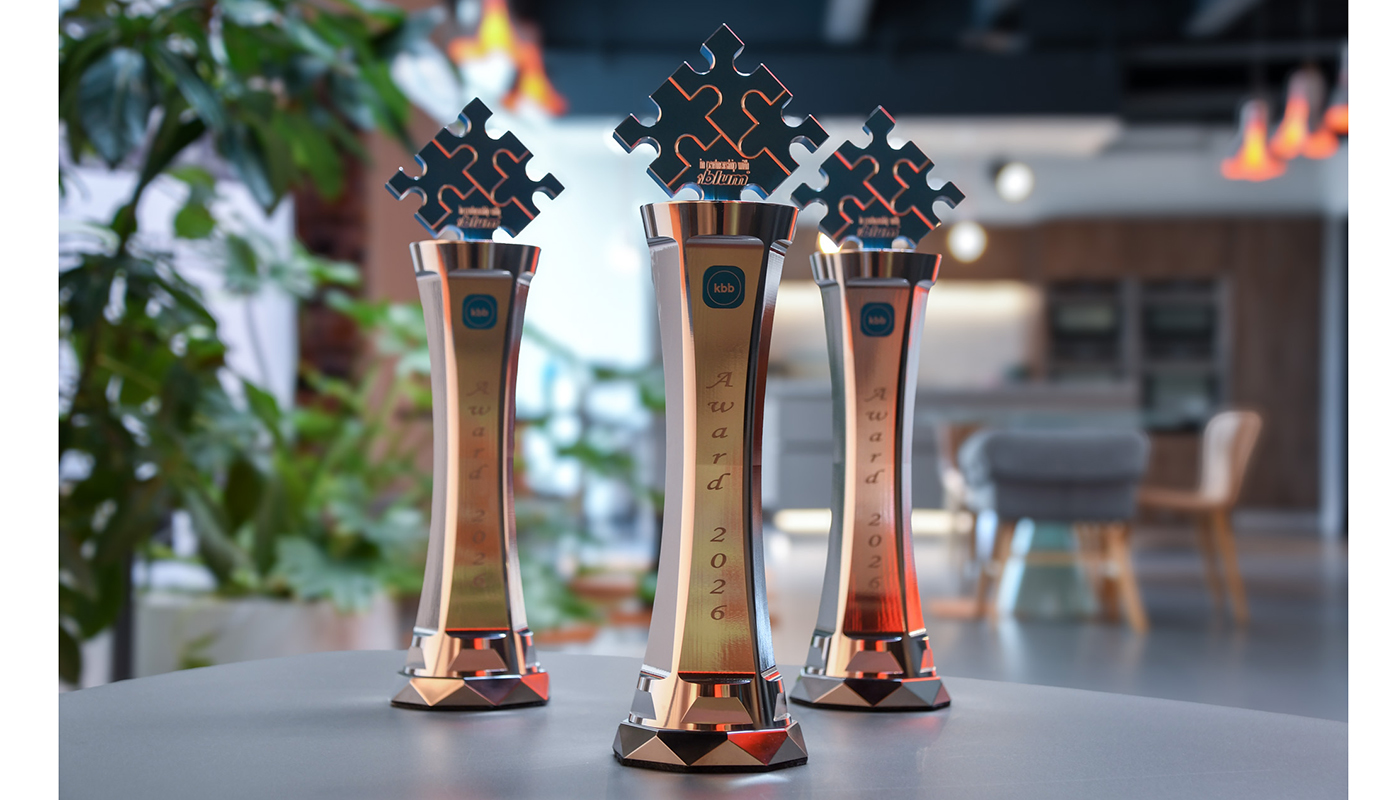Interview: How Fitzroy of London is transforming accessible bathrooms
Wed 12th Feb 2025 by Nicola Hanley

Interview: How Fitzroy of London is transforming accessible bathrooms
As Fitzroy of London prepares to launch an array of new design-led products, business development director Bradley Culmer talks to Nicola Hanley about how the brand is 'disrupting' the accessible bathroom market.
2024 was a milestone year for Fitzroy of London, which successfully rebranded from NYMAS – North Yorkshire Mobility and Safety – to the brand that operated under the group’s umbrella. The change, says business development director Bradley Culmer, was about unifying its identity under one name, capitalising on Fitzroy of London’s established reputation and streamlining its operations while simplifying its messages. “The rebrand really enables us to continue our quest to become the most widely specified inclusive bathroom brand,” says Culmer.
Over the last 25 years, the Billingham-based company, which was founded in 1999, has established itself as a market-leading manufacturer of inclusive bathroom products, acquiring Barwood Products along the way in 2015.
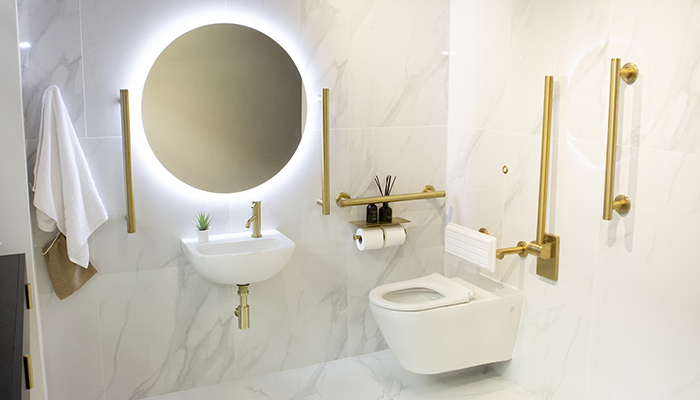
The following year brought another opportunity for the company when Soho House Interior Design tasked it with providing premium-quality accessible bathrooms for renowned luxury London hotel The Ned. “At the time, inclusive bathrooms were white, blue, grey or chrome and looked very institutionalised,” says Culmer. “As a business, we have always been quite adventurous so we decided to step up to the challenge.”
The brief was to create fully complaint accessible bathrooms that were ultra-luxurious and consistent in quality and style with all the other areas of the hotel. Part of its solution was a range of bathroom fittings in an antique brass finish that were crafted to match fittings by Lefroy Brooks. “It was new territory for us,” says Culmer. “But once the Ned was completed, it became very well known because what we’d done was revolutionary and therefore we had a lot of requests from other luxury hotels and interior designers wanting something similar. So, inspired by the one-off custom products we’d designed for The Ned, we created the Fitzroy of London brand.”
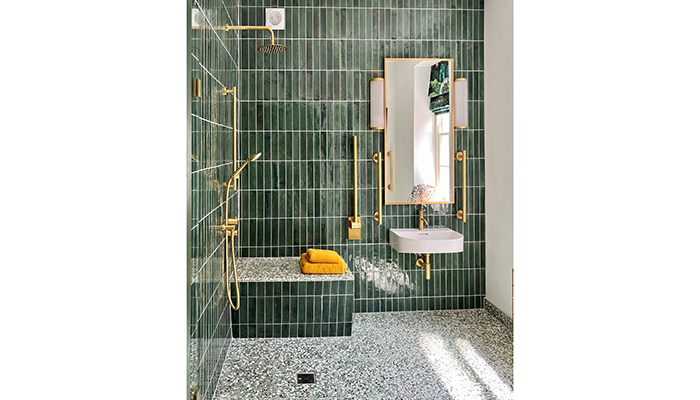
As the projects piled up, so too did the number of design-led finishes in its portfolio. “The interior designers we were working with were specifying fittings from other manufacturers such as Dornbracht, Axor, Gessi and Samuel Heath, and each of those projects had a different finish we had to match. So very quickly our range of finishes became quite substantial.”
Culmer credits the work that the company did on The Ned and all the projects that followed with changing accessible bathrooms forever. “We proved that although it might be difficult, it is possible to have an accessible bathroom that is of exactly the same standard as every other bathroom. And it was an eye-opening moment.”
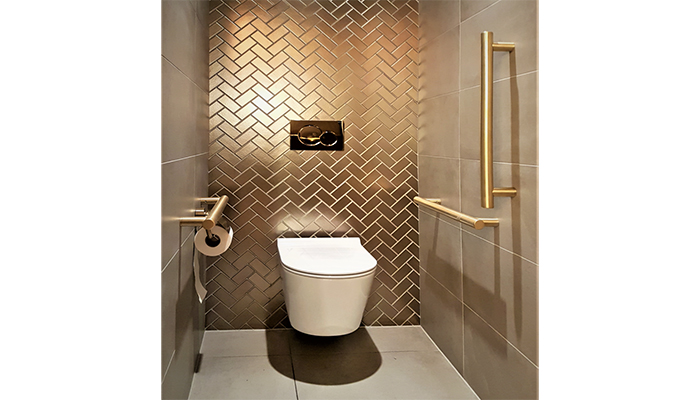
It’s a strategy, he says, that has given Fitzroy of London a reputation for shaking up the market. “Other manufacturers recognise that we have disrupted the market and now they’re paddling quite fast to try and catch up.”
According to Culmer, accessibility and inclusivity is part of Fitzroy of London’s DNA and the company is committed to “staying true to our core and changing the accessible market.” However, it is on the cusp of introducing new design-led accessories such as toilet roll holders, soap dispensers and towel rails, set to launch in February, and taps and showers, which it is calling Water Controls, in March. “We’re not looking to become a generalist but we want people to be able to choose everything from one brand,” explains Culmer.
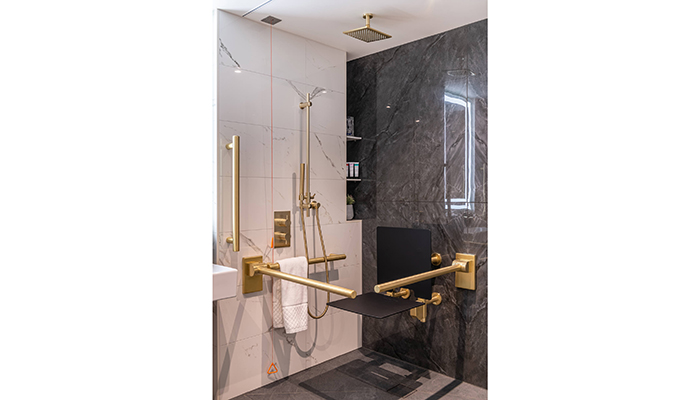
Next up will be sanitaryware. “Currently our sanitaryware range is limited and we’re aware of that. We want to take what was the existing expectation in terms of accessible sanitaryware and turn it on its head and offer the market products that don’t look accessible. Of course it needs to meet certain requirements but we want it to look stylish,” says Culmer. “Like we’ve done with accessories and water controls, we want to offer standard and accessible sanitaryware that match perfectly, removing the barrier between the spaces. We think it’ll come in 2026.”
While Fitzroy of London remains committed to growing its trade and contract business, Culmer says the company is also looking to expand its retail arm and sell through more independent bathroom retailers. “As we supply, or have terms with, most buying groups in the UK, we are starting to get enquiries from bathroom showrooms,” says Culmer. “As a company we need to improve our offering for retailers so we’ll be introducing things like display boards and stands so bathroom showrooms are able to take our products and sell them.”
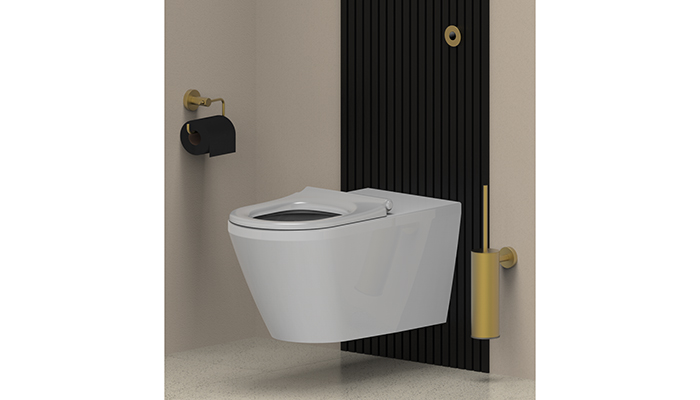
And would Fitzroy of London ever consider venturing into the accessible kitchen market? “It’s an interesting question,” says Culmer. “I would say anything is on the table. We have a vision for 2030 where we want our turnover to be around £30m – it’s £10m currently – and we can see the route to get there in the bathroom sphere. However, once we achieve our goals, we’ll be setting our milestones for 2040 and 2050 and beyond and at that point the kitchen might be the logical next step.”
Tags: interview, features, bradley culmer, fitzroy of london, bathrooms, accessible bathroom design





